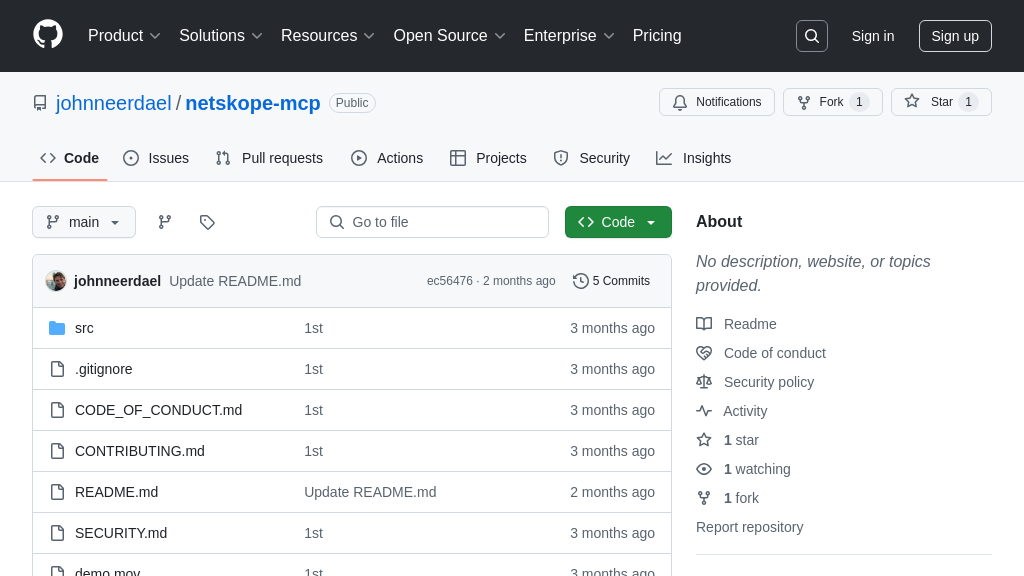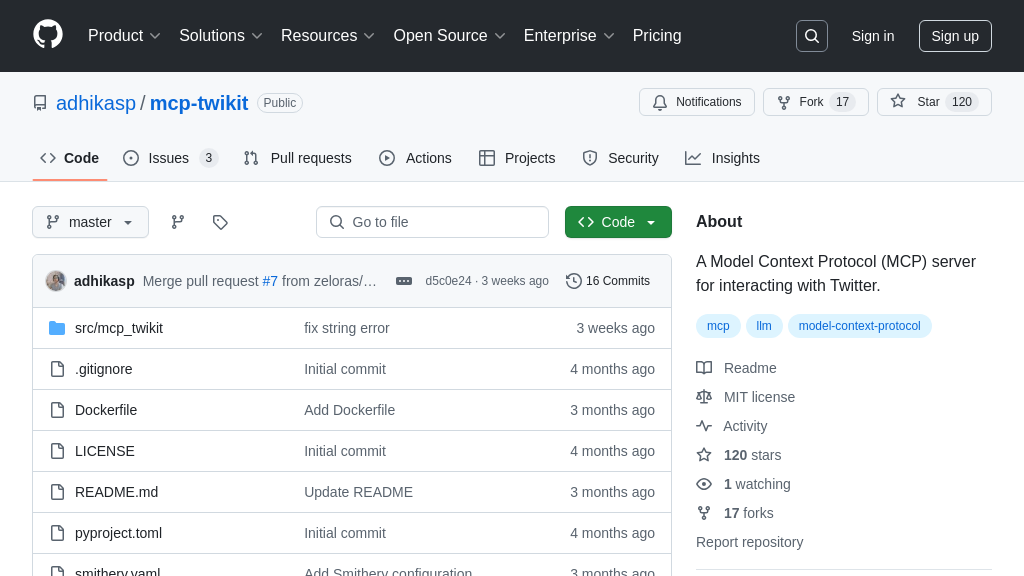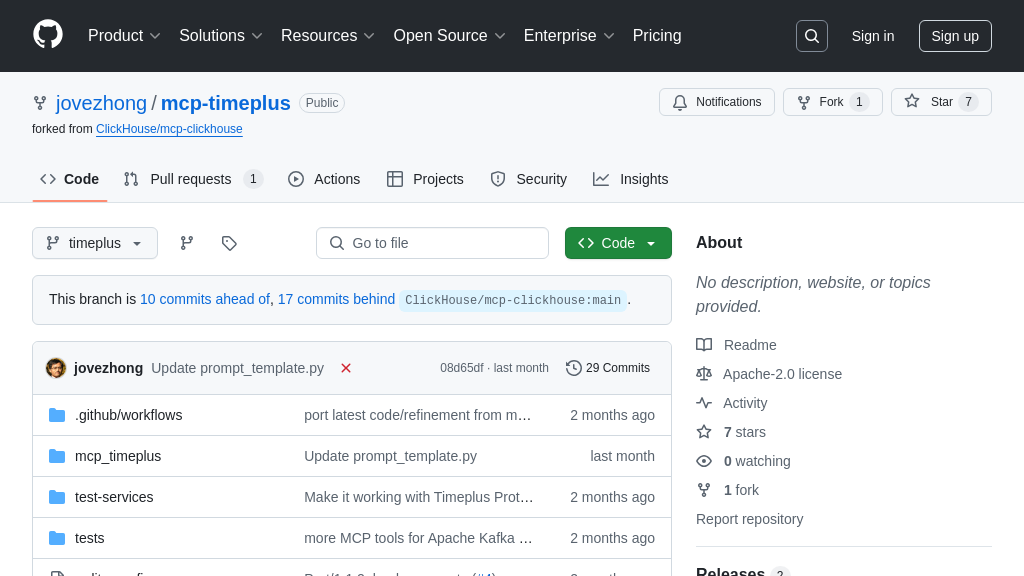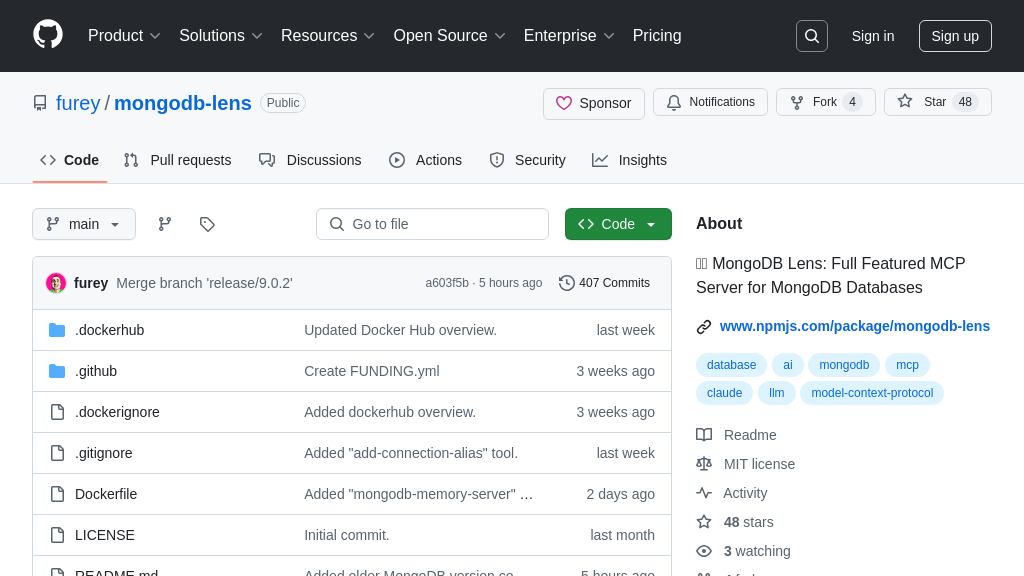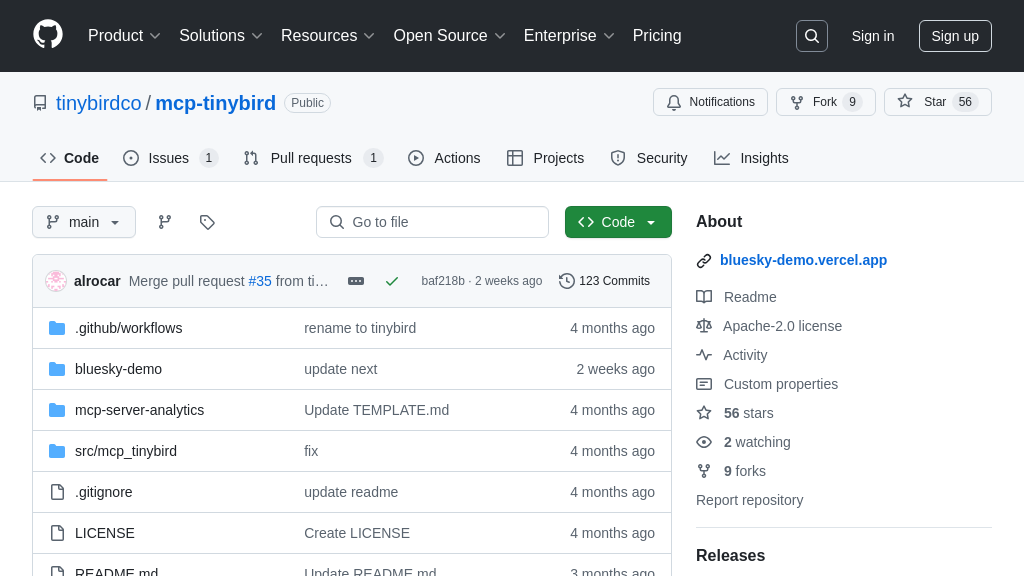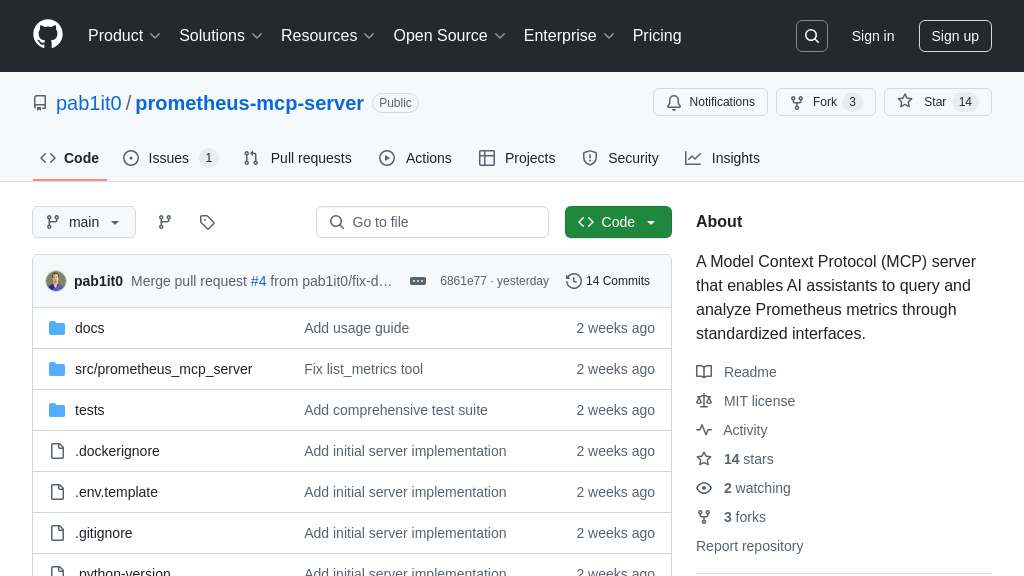screenpipe
Screenpipe: Open-source AI app store with 24/7 desktop history. Build AI-powered desktop apps using its plugin system, a valuable resource for MCP integration.
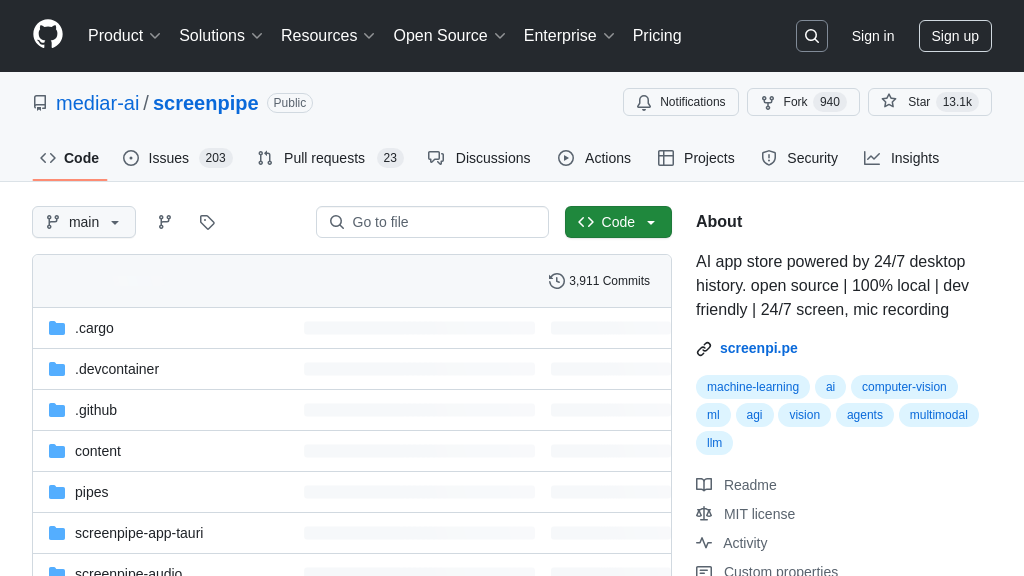
screenpipe Solution Overview
Screenpipe is an open-source AI app store that provides AI models with a unique resource: continuous, locally-stored desktop history. Functioning as a server within the MCP ecosystem, Screenpipe records screen and microphone activity, making it accessible through an indexed API. Developers can create "pipes," or plugins, using Next.js within a sandboxed Rust environment, effectively acting as clients that interact with the Screenpipe server.
This architecture allows AI models to gain real-time context from user activity. The core value lies in its ability to create desktop applications with unprecedented awareness, enabling automation and intelligent assistance. Screenpipe addresses the developer need for readily available, contextual data, offering a platform for publishing and monetizing these "pipes" through its store. Its local-first approach ensures privacy and security, while its plugin system promotes extensibility and integration within the broader MCP framework.
screenpipe Key Capabilities
24/7 Local Desktop History
Screenpipe continuously records screen and microphone activity, storing the data locally. This comprehensive desktop history serves as a rich, contextual resource for AI models. The recording process is designed to be efficient, utilizing approximately 10% CPU, 4 GB RAM, and 15 GB of storage per month. This allows for continuous data capture without significantly impacting system performance. The recorded data is indexed, providing a structured and searchable archive of user activity. This feature enables AI models to access and analyze past interactions, providing a deeper understanding of user behavior and context.
Use Case: An AI assistant can analyze the user's desktop history to understand the context of a current task. For example, if a user is writing an email about a specific project, the AI can access the relevant documents, websites, and communication history related to that project, providing intelligent suggestions and assistance.
Indexed API for Data Access
Screenpipe provides a robust API for accessing the recorded desktop history. This API allows developers to programmatically retrieve and analyze the stored data. The indexed nature of the data ensures efficient and targeted retrieval, enabling AI models to quickly access the specific information they need. The API supports various query parameters, allowing developers to filter and refine their searches based on time, application, and other relevant criteria. This feature is crucial for integrating Screenpipe with AI models and other applications.
Use Case: A data scientist can use the API to extract data for training a machine learning model that predicts user behavior based on their desktop activity. The API allows them to easily access and process large volumes of data, enabling them to build accurate and insightful models.
Plugin System ("Pipes")
Screenpipe's plugin system, known as "Pipes," allows developers to create custom desktop applications within a sandboxed Rust environment. These plugins can access and process the recorded desktop data, enabling a wide range of AI-powered functionalities. The use of Next.js for building the user interface provides a familiar and efficient development experience. The sandboxed Rust environment ensures the security and stability of the system, preventing malicious plugins from compromising the core functionality. This plugin system fosters innovation and allows developers to extend the capabilities of Screenpipe.
Use Case: A developer can create a "Pipe" that automatically summarizes the content of the user's screen, providing a quick overview of the information being displayed. This can be particularly useful for users who need to quickly process large amounts of information.
Screenpipe Operator for Automation
Screenpipe Operator offers a Playwright-like API for desktop automation. This low-level API provides accurate and reliable control over desktop applications, unlike pixel-based approaches used by other AI agents. It enables developers to create automated workflows and scripts that interact directly with the desktop environment. The API's accuracy ensures that automations are precise and consistent, reducing the risk of errors.
Use Case: A developer can create an automated script that automatically fills out online forms based on data extracted from the user's screen. This can save users time and effort by automating repetitive tasks.
Pipe Store for Monetization
The Pipe Store provides a platform for developers to publish and monetize their Screenpipe plugins. This creates an ecosystem where developers can share their creations and earn revenue for their work. The store integrates with Stripe, allowing developers to easily manage subscriptions and payments. This feature encourages developers to create high-quality plugins and contribute to the Screenpipe ecosystem.
Use Case: A developer can create a premium "Pipe" that provides advanced data analysis and visualization capabilities. They can then sell this plugin on the Pipe Store, earning revenue from users who find it valuable.



